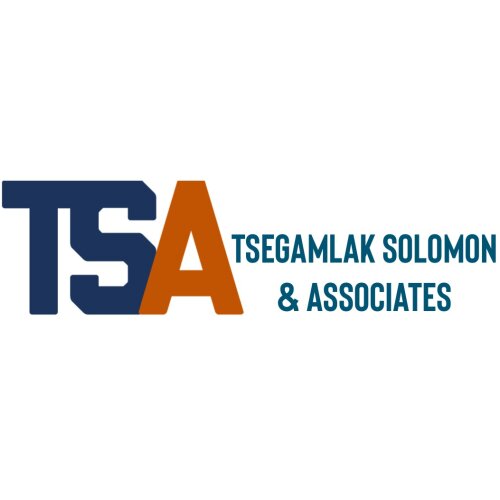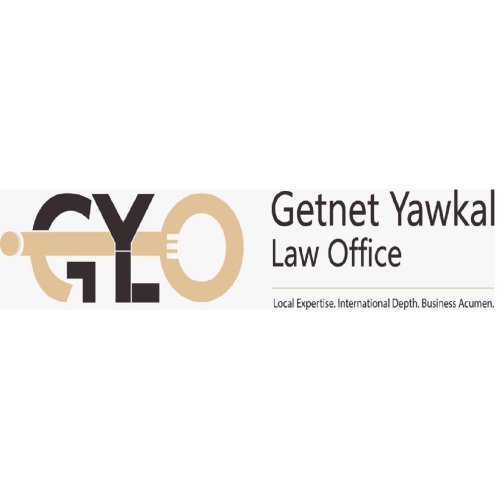Best Public-Private Partnerships (PPP) Lawyers in Ethiopia
Share your needs with us, get contacted by law firms.
Free. Takes 2 min.
Or refine your search by selecting a city:
List of the best lawyers in Ethiopia
About Public-Private Partnerships (PPP) Law in Ethiopia
Public-Private Partnerships, commonly known as PPPs, play an increasingly important role in Ethiopia’s economic development. A PPP is a legal arrangement where the government collaborates with private sector entities to finance, construct, operate or maintain infrastructure projects or services traditionally provided by the public sector. In Ethiopia, PPPs are commonly used in sectors such as energy, transport, water supply, health, and education to leverage private sector expertise and funding for national development objectives. The legal framework for PPPs in Ethiopia aims to ensure that such collaborations are mutually beneficial, transparent, and contribute to sustainable economic growth.
Why You May Need a Lawyer
There are several situations where legal help is essential in the context of Public-Private Partnerships in Ethiopia. Some common reasons include:
- Understanding and complying with PPP-related laws and regulations.
- Drafting, reviewing, or negotiating complex PPP contracts and agreements.
- Ensuring your interests are protected during the bidding or tendering process.
- Advising on land acquisition, licensing, and regulatory approvals for projects.
- Managing disputes or disagreements between private and public partners.
- Navigating procurement guidelines and ensuring anti-corruption compliance.
- Addressing tax issues, financing structures, and risk allocation mechanisms.
- Representing clients before government agencies or in court regarding project challenges.
Because PPP arrangements are legally complex and involve significant financial commitments, having a qualified lawyer can help anticipate potential challenges, streamline the project process, and safeguard your business interests.
Local Laws Overview
Ethiopia has established a specific legal and regulatory framework for Public-Private Partnerships. The main pieces of legislation include:
- PPP Proclamation No. 1076/2018 - This law sets out the rules for identifying, developing, and implementing PPP projects, including how projects are procured, developed, and managed.
- PPP Council of Ministers Regulation No. 49/2018 - This regulation provides more detailed guidelines on PPP project procedures, risk allocation, and roles of relevant government bodies.
Some of the key aspects of PPP law in Ethiopia include:
- Establishment of the Public-Private Partnership Directorate General (PPP-DG) under the Ministry of Finance, overseeing PPP policy and implementation.
- A transparent process for selecting private partners through competitive bidding, with precise eligibility requirements and criteria.
- Requirements for risk sharing between the public and private sectors, focusing on efficiency and value for money.
- Regulations relating to the duration, transfer, and termination of PPP contracts.
- Dispute resolution mechanisms, including the possibility of arbitration.
- Environmental and social impact assessments as part of project approval processes.
These laws are designed to create a favorable investment climate, protect the interests of all parties, and ensure the public benefits from PPP projects.
Frequently Asked Questions
What is a Public-Private Partnership (PPP)?
A PPP is an arrangement where the public sector partners with private companies to deliver infrastructure or services that would otherwise be publicly funded and managed.
Who can enter into a PPP in Ethiopia?
Both domestic and foreign private investors, companies, and consortiums can partner with the Ethiopian government or public institutions as part of a PPP arrangement.
Which authority oversees PPPs in Ethiopia?
The Public-Private Partnership Directorate General (PPP-DG) under the Ministry of Finance is the primary body responsible for promoting, regulating, and overseeing PPP projects in Ethiopia.
What types of projects are eligible for PPPs?
PPP arrangements are common in large-scale infrastructure projects such as power generation, transport (roads, railways, airports), water supply and sanitation, hospitals, and educational institutions.
How are PPP projects selected and approved?
Projects are proposed and screened based on national development priorities, value for money, and technical feasibility. They are subject to a strict competitive bidding and approval process as defined by law.
What are the main risks in PPP contracts?
Risks in PPPs include construction delays, financing challenges, regulatory changes, demand fluctuations, and political risks. These are shared and managed between partners in accordance with the agreement and relevant laws.
How are disputes resolved in PPP arrangements?
Disputes can be resolved through negotiation, mediation, or arbitration, as provided for in the PPP contract and applicable laws. Ethiopian law supports arbitration as an alternative dispute resolution method for PPPs.
Are there incentives for private investors in PPPs?
Yes, certain incentives such as tax breaks, guarantees, or government support may be offered to private investors participating in strategic PPP projects, subject to specific legal provisions.
What are the environmental and social obligations in PPPs?
PPP projects must comply with Ethiopian environmental and social regulations, including submitting and implementing impact assessments and mitigation plans approved by the relevant authorities.
Do PPP laws in Ethiopia allow for foreign private partners?
Yes, the law encourages both domestic and foreign investment in PPP projects, subject to Ethiopian investment laws and sector-specific requirements.
Additional Resources
If you need more information or guidance on Public-Private Partnerships in Ethiopia, the following resources and organizations may be helpful:
- Ministry of Finance - Public-Private Partnership Directorate General (PPP-DG)
- Ethiopian Investment Commission (EIC)
- Ministry of Justice (for legal advice and contract enforcement)
- Ethiopian Chamber of Commerce and Sectoral Associations
- Local law firms experienced in PPP and infrastructure law
- Business and professional associations involved in infrastructure development
Next Steps
If you are considering participating in a Public-Private Partnership project in Ethiopia, or if you are already involved and need legal assistance, here are practical next steps:
- Assess your project or interest area to determine if it qualifies for PPP under Ethiopian law.
- Consult with a legal professional experienced in PPP matters for tailored advice and to understand your compliance obligations.
- Gather all relevant documents, including business credentials and previous project experience, for review by your legal advisor.
- Contact the Public-Private Partnership Directorate General at the Ministry of Finance for official procedures and project eligibility criteria.
- Engage in stakeholder meetings and attend information sessions provided by relevant government agencies.
- If you are facing a dispute, seek immediate legal advice to evaluate your options for negotiation, mediation, or other resolution mechanisms.
Taking these steps will help protect your interests and ensure compliance with the legal framework governing PPPs in Ethiopia.
Lawzana helps you find the best lawyers and law firms in Ethiopia through a curated and pre-screened list of qualified legal professionals. Our platform offers rankings and detailed profiles of attorneys and law firms, allowing you to compare based on practice areas, including Public-Private Partnerships (PPP), experience, and client feedback.
Each profile includes a description of the firm's areas of practice, client reviews, team members and partners, year of establishment, spoken languages, office locations, contact information, social media presence, and any published articles or resources. Most firms on our platform speak English and are experienced in both local and international legal matters.
Get a quote from top-rated law firms in Ethiopia — quickly, securely, and without unnecessary hassle.
Disclaimer:
The information provided on this page is for general informational purposes only and does not constitute legal advice. While we strive to ensure the accuracy and relevance of the content, legal information may change over time, and interpretations of the law can vary. You should always consult with a qualified legal professional for advice specific to your situation.
We disclaim all liability for actions taken or not taken based on the content of this page. If you believe any information is incorrect or outdated, please contact us, and we will review and update it where appropriate.
Browse public-private partnerships (ppp) law firms by city in Ethiopia
Refine your search by selecting a city.

















